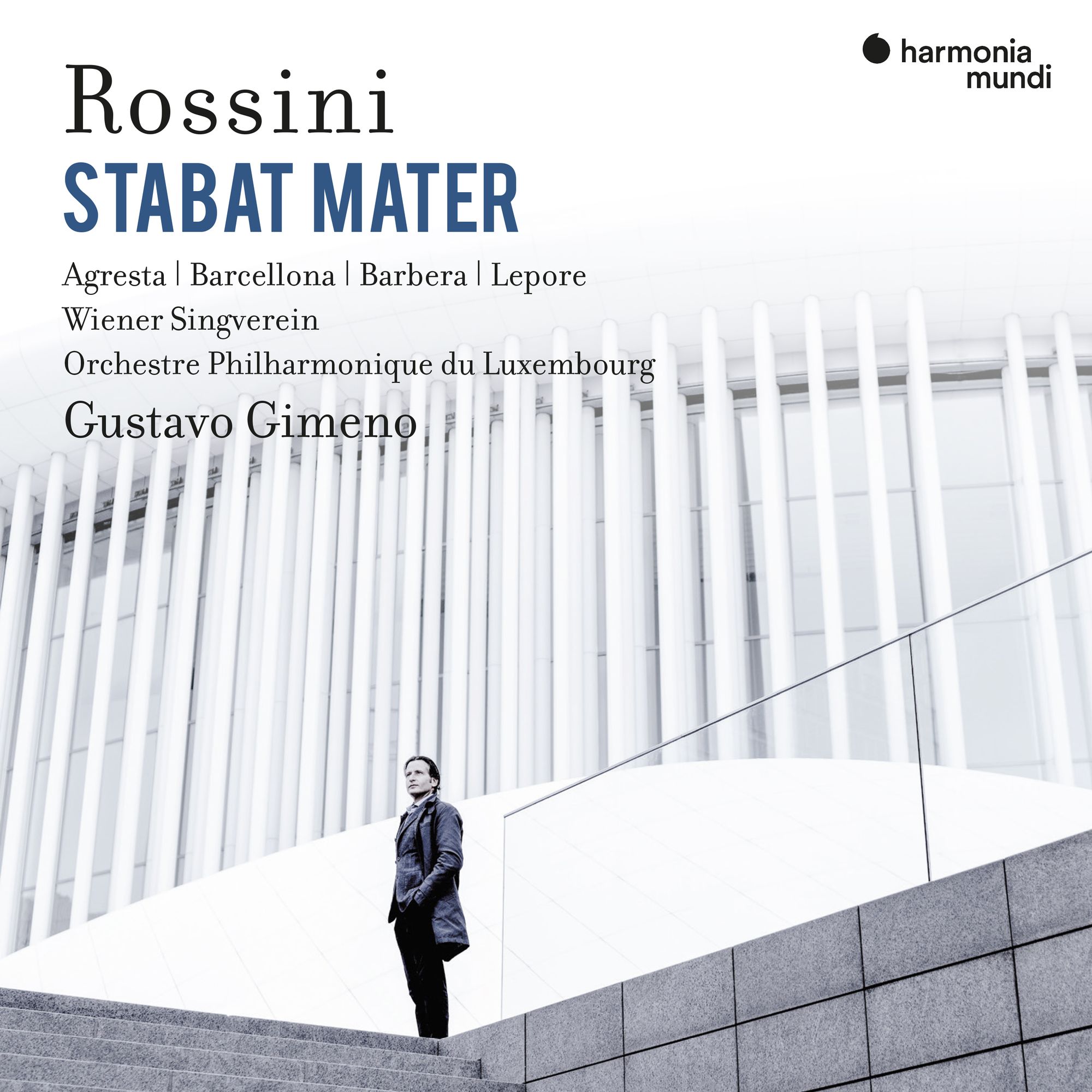Rossini's Stabat Mater
Gimeno's new recording sets a new standard for this piece, as well as introducing us to the wonderful Luxembourg orchestra. Unmissable - and very pertinent at this time of year ...

An apt post for Easter, continuing on from yesterday's Evensong disc from St John's, Cambridge. This disc of Rossini's Stabat Mater also celebrates the first fruits of a partnership between conductor Gustavo Gimeno and Harmonia Mundi. Gimeno directs the OPL (the Orchestre Philharmonique de Luxembourg), an orchestra he took over in 2015.
While Rossini might be associated primarily with the theatre, this piece shows anotehr side of him whle retaining his musical signature. It was composed after his "retirement" from opera. While the disc publicity seeks to defend Rossini's writing, which it claims is often criticised as operatic, Rossini's piece sits perfectly well on its own two feet. If you want an operatic setting of liturgical text, go to Verdi's Requiem! (this one would do you nicely). We can hear how this works in the beautiful opening "Stabat Mater dolorosa":
Yes, the tenor "Cujus animam gementem" is an aria which could for all the world come from an opera, but it is beautifully managed here (and with some vocal strength and heft!) by René Barbera:
The text is from the 13th century and concentrates on the Divine Feminine as exemplified by the Mother/Viirgin Maryat the Curcifixion. You can find the full text here.
The duet for "Quis est homo" is particularly beautiful, a duet between soprano and mezzo, here Maria Agresta and the great Daniela Barcellone, whos voices work supermely well together: listen to the dual ascent (unaccompanied soloists) at the beginning of their vocal cadenza:
If I find bass soloist Carlo Lepare somewhat over-vibratoed in the"Pro Peccatis," there's no doubting how well the soloists as a group in the Quartet, "Stabat Mater," the sixth movement:
Soprano Maria Agresta shines in the dramatic 'Inflammatus" - and just listen to the power of Rossini's choral writing:
Rossini's piece ends in a blaze of choral glory:
We are a long way now from Giulini's classic DG recording with the Philharmonia and a terrific line-up of soloists, but personally I wouldn't be without either (I won't put an Amazon link to the Giulini in the usual place as it's currently going for a rather unrealistic £47 at the moment - and it's a single disc!):
Gimeno's new recording sets a new standard for this piece, as well as introducing us to the wonderful Luxembourg orchestra. Intelligently chosen soloists seal the deal, along with the state-of-the-art recording. Unmissable - and very pertinent at this time of year ...
Rossini Stabat Mater Gimeno